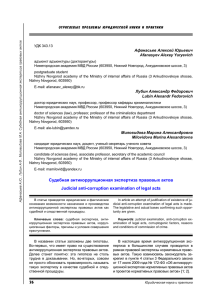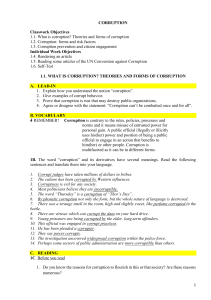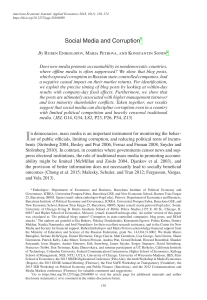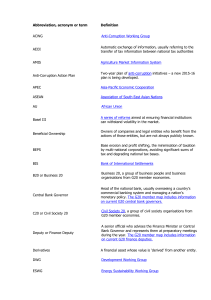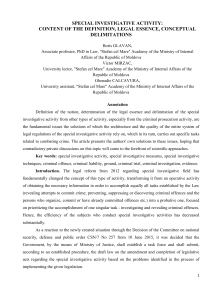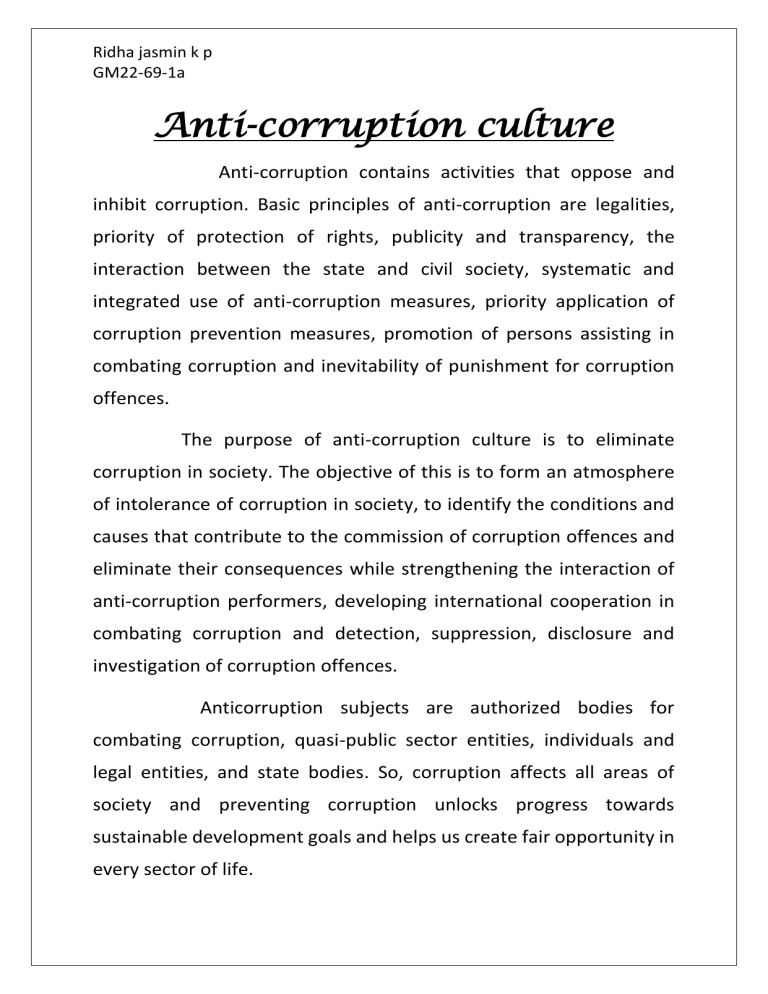
Ridha jasmin k p GM22-69-1a Anti-corruption culture Anti-corruption contains activities that oppose and inhibit corruption. Basic principles of anti-corruption are legalities, priority of protection of rights, publicity and transparency, the interaction between the state and civil society, systematic and integrated use of anti-corruption measures, priority application of corruption prevention measures, promotion of persons assisting in combating corruption and inevitability of punishment for corruption offences. The purpose of anti-corruption culture is to eliminate corruption in society. The objective of this is to form an atmosphere of intolerance of corruption in society, to identify the conditions and causes that contribute to the commission of corruption offences and eliminate their consequences while strengthening the interaction of anti-corruption performers, developing international cooperation in combating corruption and detection, suppression, disclosure and investigation of corruption offences. Anticorruption subjects are authorized bodies for combating corruption, quasi-public sector entities, individuals and legal entities, and state bodies. So, corruption affects all areas of society and preventing corruption unlocks progress towards sustainable development goals and helps us create fair opportunity in every sector of life.
